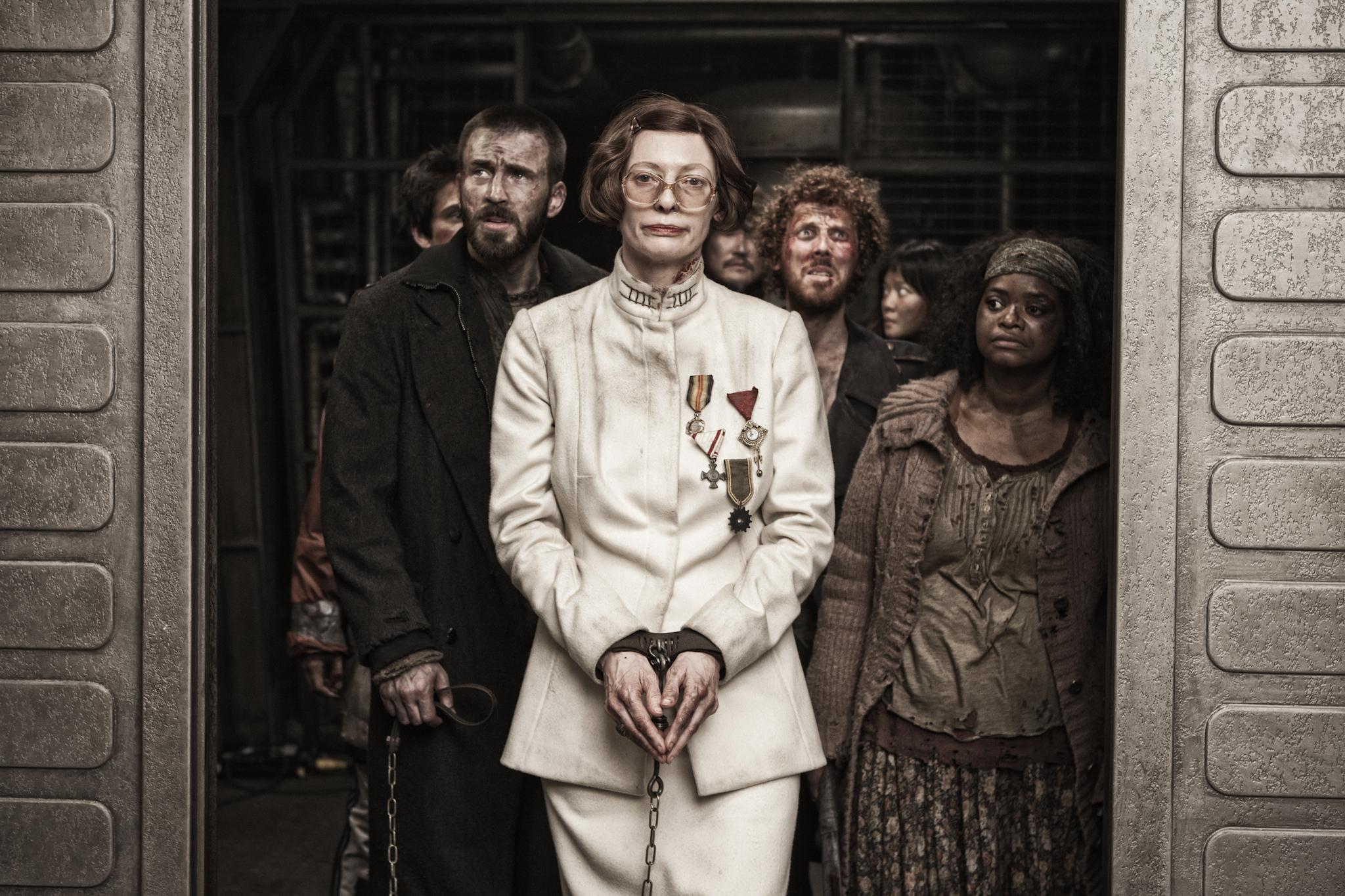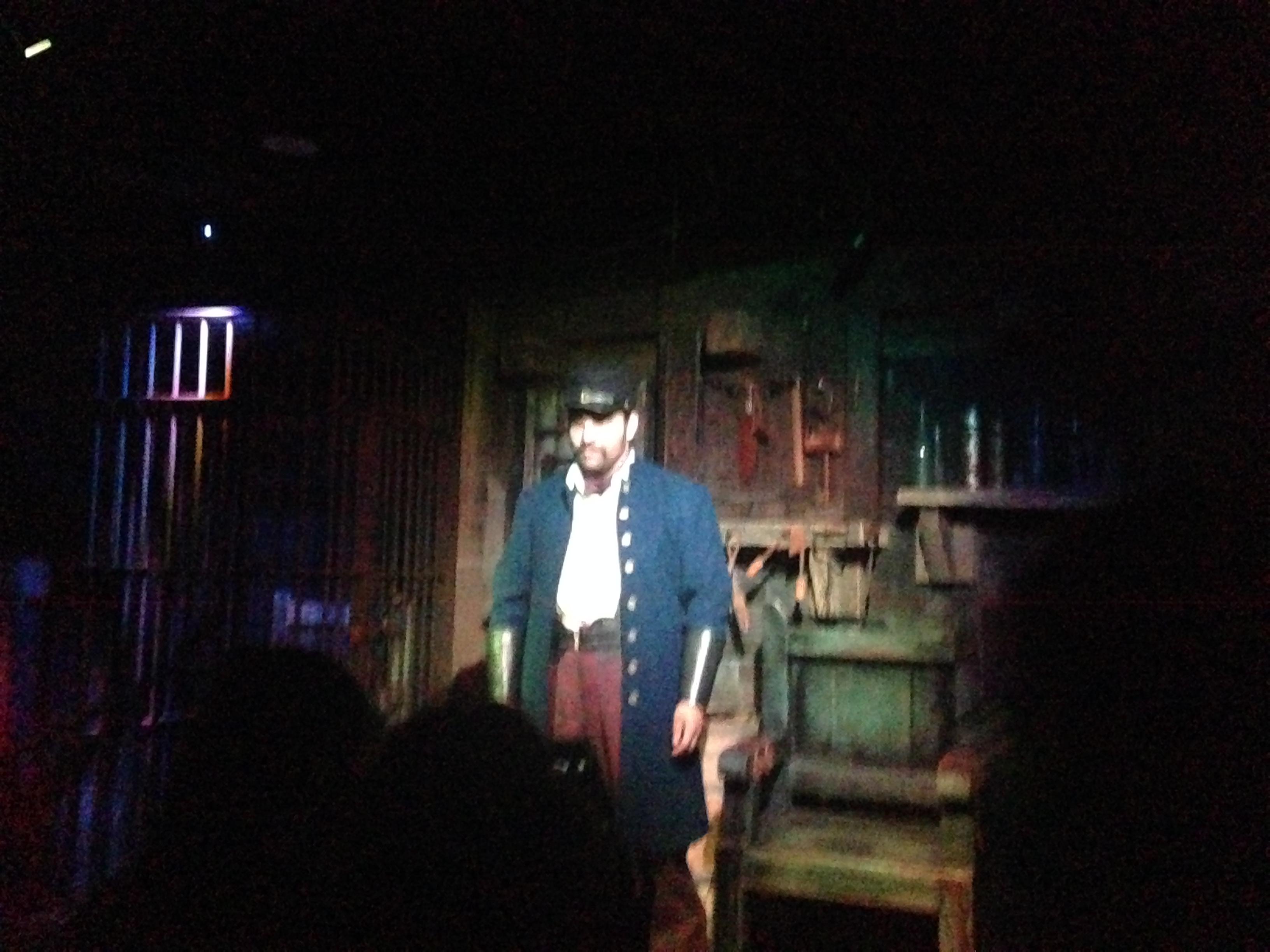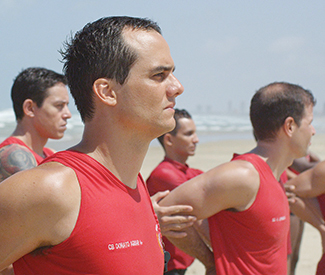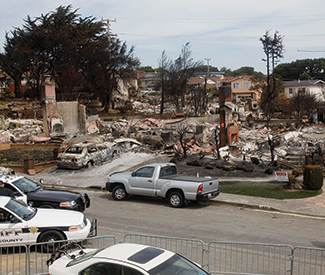Film listings are edited by Cheryl Eddy. Reviewers are Kimberly Chun, Dennis Harvey, Lynn Rapoport, and Sara Maria Vizcarrondo. For rep house showtimes, see Rep Clock.
OPENING
Begin Again See “Key of Twee.” (1:45) California, Embarcadero, Piedmont.
Le Chef Before you fire up Twitter to alert Jon Favreau that he’s been ripped off, know that this French comedy came out in 2012. Also, it’s highly unlikely to garner even a quarter-teaspoon of the praise racked up by Favreau’s food-truck tale. Even the formidable presence of Jean Reno can’t save Le Chef; he plays veteran celebrity chef Lagarde, who’s about to have his professional reputation toppled by the money-hungry mogul who owns his signature restaurant. (Yuppie scum wants him to switch to uber-trendy molecular cuisine; traditionalist Legarde ain’t having it.) Enter eager apprentice Jacky (Michael Youn), whose Rain Man-like ability to recall all of Legarde’s recipes makes him a valuable secret weapon in this high-stakes gastronomical battle, which will culminate when a food critic decides whether to dock one of the stars in Legarde’s rating — thus opening a contract loophole that’ll allow his boss to kick him out of the kitchen. BYO food clichés to describe this too-lightweight yet overly hammy affair, which also folds domestic dramas (Jacky’s exasperated, heavily pregnant GF doesn’t understand his cooking dreams! Legarde’s neglected daughter might as well be named Sullen McEyeroll!) into the batter. And if you can’t figure out the ending within the first act, no dessert for you. (1:24) Elmwood, Opera Plaza. (Eddy)
Deliver Us From Evil Eric Bana stars as an NYPD cop who encounters a case that may involve demonic possession. Édgar Ramírez co-stars as the priest who helps him. (1:58) Presidio.
Earth to Echo It’s not easy being a Goonie — or riding the coattails of E.T. even 30-plus years along. But that feeling of discovery and interstellar friendship forged in the face of a formidable establishment still calls out, like the insistent bleep of a long-forgotten intergalactic transmission. That appears to be the MO behind Earth to Echo, a decidedly clunkier outing than the aforementioned, despite its nods to a gadget-happy, geekier generation. This time, developers ostensibly want to drive a freeway through the suburban tract homes of wiseacre Tuck (Brian “Astro” Bradley), sensitive foster kid Alex (Teo Halm), and sweet science nerd Munch (Reese Hartwig). A bout of mysterious cell phone interference leads the kids to spend their last night in the ‘hood following the map that appears on their screens. What might have been another crowd-sourced game leads to a weird little piece of space junk that turns out to be the pod for an adorable, owl-like little brother from another planet. Naturally everything they discover needs to be documented for sharing later, though at first they’re hesitant to disclose their find with a popular classmate (Ella Wahlestedt) and a particularly snoopy engineer (Jason Gray-Stanford). But why bother when it’s all been seen before (with the exception of having an African American kid as the first-person narrator of this kids sci-fi adventure)? Director Dave Green is definitely counting on his audience being born yesterday, though parents who remember the source material will recognize that Green has considerably less finesse than Steven Spielberg. There’s only so much that special effects can accomplish when the initial camerawork looks so blown out and crappy, even if it’s supposed to have been documented on a phone. And Green’s slovenly direction, combined with way-too-roughed-out storytelling — how do a kid and alien managed to slip out of evil-empire governmental control, with zero effort, exactly? — do little to mark Earth as more than a knock-off. (1:29) Shattuck. (Chun)
Hellion Beer drinking and metal tees, shit-talking and shit-kicking, boys and their toys and their broken dreams — the signatures of director-writer Kat Candler are familiar even to those unversed in her 2006 Jumping Off Bridges and the short that this feature is based on. Yet somehow the motocross-fixated Jacob (Josh Wiggins) is finding his own fresh hell amid this testosterone-scape: with the death of his mother, his faded baseball star of a father (Aaron Paul) is struggling to hold the family together and kick his tendency to take refuge at the bottom of a beer can. Meanwhile younger brother Wes (Deke Garner) has been taken away and placed with the boys’ Aunt Pam (Juliette Lewis). Candler makes this hell of hurts fresh with her close attention to detail, relishing the whipped cream sandwiches and sofa bounce-offs of home-alone kids as well as the throttled rage of the Metallica and Slayer soundtrack, and charged performances from all, in particular Paul, also an executive producer here, and Lewis, two small-town castaways just a hair less lost than the kids. (1:33) Roxie. (Chun)
The Internet’s Own Boy: The Story of Aaron Swartz The current debate over net neutrality’s potential demise makes this a perfect moment for Brian Knappenberger’s documentary, which chronicles a dismal prior instance of government interference in online information access. Chicago native Aaron Swartz was such a programming prodigy that he was known internationally by age 13, though few realized how young he was until they met him at conferences. Years later, increasingly politicized about web freedom, he became a target for post-9/11 federal paranoia. His specific “crime” was mass-downloading academic journal materials that by strict legal terms should be freely available to all — but instead are used as a commercial cash cow without benefiting their actual authors. Seeking to use him as an example to other “hacktivists,” the Justice Dept. threatened Swartz with outrageously high prison sentencing and monetary fines. But in driving the 26-year-old to suicide, they created a martyr, one sacrificed at the altar of dubious, overzealous fears over commercial piracy and classified-intel leakage. Poignant and dramatic, The Internet’s Own Boy doesn’t canonize its subject — like many prodigies, he often seemed high-strung and socially awkward — but conveys his personal tragedy while using it to illuminate complex larger issues as urgent as they are often (as our government hopes) confoundingly difficult to understand. (1:45) Roxie. (Harvey)
Life Itself Paying back the critic who championed his Hoop Dreams 20 years ago, and then some, Steve James’s documentary about the late Roger Ebert is the kind of tribute that sometimes feels like an authorized biographical video played at a testimonial dinner. If he were alive, and it were about someone else, I suspect Ebert himself would be more polite than enthused. It traces his love of newspaperdom from an early age (he started writing for one at age 15); his semi-accidental falling into being the Chicago Sun-Times’ film reviewer in 1967 (a post he’d hold for 46 years); his Pulitzer win; the huge impact of TV’s Sneak Previews, aka At the Movies; his very rocky relationship with co-host Gene Siskel; and his happy first/last marriage at age 50. Ebert was prolific, gregarious, a friend to rising filmmakers (so long as he liked their work, of course), and someone who saw no conflict in being friends with established ones (like Scorsese and Herzog, both interviewed here). But Life Itself — “the only thing he loved more than the movies,” a statement that might strike you as profound or kinda “duh” — assesses his cultural impact as the most popular-movie-critic-probably-ever without really addressing his taste or style. As a result, it has the slightly pat quality of a movie content to admire its subject without digging very deep into the work that defined him. (Nor do the blown-up-video-quality clips from films do justice to his love of that medium.) Instead, the primary focus is on his later struggles with cancer, which took his lower jaw and speech before claiming his life. That stuff is tough to watch. Most entertaining are insights into his long-running ego war with Siskel, who brought out (often on camera) irritable, petty, competitive, and bullying sides to Ebert the public otherwise seldom saw. (1:58) Embarcadero. (Harvey)
Tammy Melissa McCarthy co-wrote (with husband Dan Falcone, who directs) and stars in this comedy about a women in crisis who hits the road with her boozy grandma (Susan Sarandon). (1:37) Cerrito, Four Star, Marina, Shattuck.
Yves Saint Laurent Biopic exploring the early career of the fashion icon. (1:45) Clay.
ONGOING
The Amazing Spider-Man 2 The best thing about The Amazing Spider-Man 2 — the sequel to the 2012 reboot that nobody really wanted in the first place — is the achingly cute chemistry between real-life couple Andrew Garfield (Peter Parker/Spider-Man) and Emma Stone (Gwen Stacy, whose fate is no spoiler to anyone who is familiar with the Spider-Man canon). Can’t deny it; those two are adorbs. But since Spider-Man is supposed to be an action movie, not a romantic comedy, it spends most of its time setting up foes for the webslinger (Jamie Foxx as a nerd zapped into the power-mad Electro; Dane DeHaan as bratty rich kid Harry Osborn), as well as rehashing the mysterious deaths of Peter’s parents, and underlining for approximately the zillionth time the disconnect between the media’s perception of Spider-Man (he’s a menace! He interferes with police work!) and the ecstatic love the people of New York have for the guy — understandable, since he’s in the business of saving their butts on a regular basis. This isn’t a crappy movie by any means; it’s entertaining enough, and the 3D swooping-between-skyscrapers FX have gotten quite dazzling. But there’s still a heavy air of “This again?” that hangs over the whole thing. Doesn’t Marvel have enough dough from the Avengers movies to let Spidey take an extended vacation? (2:20) Metreon. (Eddy)
Belle The child of a British naval officer and a Caribbean slave, Belle (Gugu Mbatha-Raw) is deposited on the doorstep — well, the estate grounds — of her father’s relatives in 1769 England after her mother dies. Soon she’s entirely orphaned, which makes her a wealthy heiress and aristocratic title holder at the same time that she is something less than human in the eyes of her adopted society. For Belle is black (or more properly, mixed-race), and thus a useless curiosity at best as a well-bred noblewoman of the “wrong” racial makeup. Based on a murky actual historical chapter, Amma Asante’s film is that rare sumptuous costume drama which actually has something on its mind beyond romance and royalty. Not least among its pleasures are a fine supporting cast including Tom Wilkinson, Miranda Richardson, Penelope Wilton, and Emily Watson. (1:45) Embarcadero, Shattuck. (Harvey)
Breathing Earth: Susumu Shingu’s Dream Japanese artist Susumu Shingu has built his career through his concerted engagement with the natural world. The wise and eternally smiling 75-year-old creates angular and often gargantuan mobiles that harness the power of wind and water to gyrate in ever-changing directions. In Breathing Earth, German director Thomas Riedelsheimer crafts a deliberately paced rumination on Shingu’s life philosophy that, while devoid of the frenetic facts, figures, and trite biographical rehashes that punctuate hyper-informative pop-docs, uses a beautifully simplistic narrative arc to illuminates Shingu’s attempt to create a hilly, open-air collection of windmills. The sculptor’s impassioned narration and charming conversations with potential landlords and investors (who usually entirely miss the point of his mission to raise environmental consciousness through aesthetic beauty) make Shingu impossible not to fall in love with — he is laid-back, funny, and astonishingly youthful. Riedelsheimer’s camera is similarly relaxed, gliding sumptuously over the green and wild landscapes on which Shingu installs his works. Despite his meditative tempo, Riedelsheimer manages to explore a remarkably wide scope; Shingu’s late-life marriage to a fellow sculptor, his appeals to both Japanese and German schoolchildren to care for the earth and help to avoid environmental disasters, and his intricate technical processes all receive intimate and inspiring sections. (1:37) Roxie, Smith Rafael. (David Kurlander)
Chef Not to take anything away from the superhero crew, but Chef feels like the closest thing to a labor of love from writer, director, and star Jon Favreau in many a day. As a director, he may have been making doughnuts — fun-filled and teeming with CGI eye candy, but doughnuts nevertheless — when it came to effects-driven blockbusters like 2008’s Iron Man, but this well-meaning play for the heart, by way of the stomach, shows you where Favreau’s head is really at. Chef revolves around Carl Casper (Favreau), a onetime food star, now reduced to serving up predictable crowd-pleasers at the behest of his restaurant’s overbearing owner (Dustin Huffman). It takes the barbs of an influential critic (Oliver Platt) — and an ensuing Twitter war — to set Carl off and send him away on his own, at the coaxing of his glam ex Inez (Sofia Vergara). Hooked up with a dilapidated food truck and former kitchen staffer Martin (John Leguizamo), and aided by ably Tweeting son Percy (Emjay Anthony), Carl ties his dreams — and lost passion — to the classic Cuban sandwich. The ensuing road trip from Miami to LA, and Carl’s journey toward self and a renewed relationship with his son, is a fun (if, in the end, a bit too speedily sketched) vault through the joys of eating your way through America’s new culinary heartland. Amid the volley of sign-of-the-times social-media swinging and cameos by the uncostumed Robert Downey Jr., Scarlett Johansson, and the like, Favreau’s main dish is that a family that eats, cooks, and runs a business together, stays together — child labor laws or no. (1:55) Balboa, Elmwood, 1000 Van Ness, Presidio, SF Center, Sundance Kabuki, Vogue. (Chun)
Citizen Koch After quietly influencing conservative ideology, legislation, and elections for decades, the billionaire industrialist Koch brothers have found themselves becoming high-profile figures — much to their dismay, no doubt. The relative invisibility they hitherto enjoyed greatly abetted their impact in myriad arenas of public policy and “popular” conservative movements. Look behind any number of recent red-vs.-blue flashpoint issues and you can find their fingerprints: Notably state-level union busting; “smaller government” (i.e. incredible shrinking social services); seeding allegedly grassroots organizations like the Tea Party; furthering the Corporations = People thing (see: Citizens United); and generally helping the rich like themselves get richer while fostering working-class outrage at everybody else. This documentary by Trouble the Water (2008) co-directors Carl Deal and Tia Lessen touches on all those matters, while also focusing on Wisconsin as a test laboratory for the brothers’ Machiavellian think-tank maneuvers, following a Louisiana GOP candidate on the campaign trail (one he’s marginalized on for opposing corporate influence peddling), and more. Any one of these topics could support a feature of their own (and most already have). Citizen Koch‘s problem is that it tries to encompass too much of its subjects’ long reach, while (despite the title) leaving those subjects themselves underexplored. (It also suffers from being a movie completed at least 18 months ago, a lifetime in current US political terms.) For the reasonably well-informed this documentary will cover a lot of familiar ground—which is not to say that ground isn’t still interesting, or that the added human interest elements don’t compel. But the film covers so much ground it ends up feeling overstuffed and unfocused. (1:26) Opera Plaza, Shattuck. (Harvey)
A Coffee in Berlin How do you say “mumblecore” in German? Jan Ole Gerster’s debut feature has certain arty pretensions — it’s shot in black-and-white, and scored with peppy jazz — but it’s more or less a rambling day in the life of law school dropout Niko (Tom Schilling). It happens to be the very day Niko’s golf-loving father decides to stop funding his shiftless son’s slacker lifestyle, though that crisis (which, you know, Lena Dunham built an entire HBO comedy around) receives nearly equal heft as a cutesy ongoing gimmick that sees Niko incapable of getting a cup of coffee anywhere in Berlin. Hipster ennui can be compelling if it has some underlying energy and purpose (see: 2013’s Frances Ha, to which this film has been compared), but A Coffee in Berlin comes up short on both. That said, it does offer an intriguing portrayal of Berlin — a city whose modern-chic façade barely contains the history that haunts it — and some of its supporting characters, particularly Friederike Kempter as a former schoolmate of Niko’s who has outgrown him emotionally by about one thousand percent, provide pleasant enough distractions. (1:28) Opera Plaza, Shattuck. (Eddy)
Edge of Tomorrow Is it OK to root for Tom Cruise again? (The Oprah thing was almost a decade ago, after all.) The entertaining Edge of Tomorrow, crisply directed by Bourne series vet Doug Liman, takes what’s most irritating about Cruise’s persona (he’s so goddamn earnest) and uses it to great advantage, casting him as military PR guru Cage — repping our armed forces on talk shows amid battles with alien invaders dubbed “Mimics” — whose oiliness masks the fact that he’s terrified of actual combat. When he’s forced to fight by a no-nonsense superior (Brendan Gleeson), he’s gruesomely killed, along with nearly every other human soldier. But wait! Thanks to a particularly close encounter with outer-space pixie dust, he awakens, unharmed, to re-live the day, over and over again (yep, shades of a certain Bill Murray comedy classic). Each “reset” offers Cage a chance to work his way closer to changing the course of the war in humanity’s favor, with key help from a badass (Emily Blunt) whose heroics on the battlefield have earned her the nickname “Full Metal Bitch.” Nothing groundbreaking here — but Edge of Tomorrow manages to make its satisfying plot as important as its 3D explosions, which means it automatically rises above what passes for popcorn fun these days. (1:53) Metreon, 1000 Van Ness, Sundance Kabuki. (Eddy)
The Fault in Our Stars I confess: I’m no card-carrying, vlog-flogging Nerdfighter in author John Green’s teen-geek army. But one can admire the passion — and teary romanticism — of the writer, readers, and the breakthrough novel that started it all. Much has been made over the cinematic tweaks to the best-selling YA book, but those seem like small beefs: OK, male romantic lead Gus’s (Ansel Elgort) perhaps-understandable brattiness seems to have been toned down a touch, but we’ll all get the somewhat-subversive push and pull of Green’s love story centered on two cancer-stricken innocents. Sixteen-year-old Hazel (a radiant Shailene Woodley) has been battling cancer almost all her life, fighting back from the brink, and now making her way every day with an oxygen tank and her devoted parents (Laura Dern, Sam Trammel) by her side. Her mordant wit, skeptical attitude, and smarts attract Gus, a handsome teen with a prosthetic leg, at a cancer support group, and the two embark on what seems like the most normal thing in the world — sweet, sweet love — albeit cut with the poignancy of almost-certain doom. Would the girl who calls herself a grenade dare to care for someone she will likely hurt? That’s the real question on her mind when the two reach out to the solitary author (Willem Dafoe) of their favorite book, An Imperial Affliction. The journey the two make leaves them both open to more hurt than either ever imagined, and though a good part of Fault‘s denouement boils down to a major puddle cuddle — with solid performances by all, but particularly Dern and Woodley — even a cynic is likely to get a bit misty as the kids endure all the stages of loss. And learning. (2:05) Balboa, 1000 Van Ness, Presidio, SF Center. (Chun)
Godzilla Bearing the weight of a 1998 American debut so stinky that devotees of the Japanese original dubbed it “GINO” (for “Godzilla in Name Only”), the King of the Monsters returns for a do-over that smells more like generic summer entertainment than anything else. We begin in 1999, when a pair of scientists (Ken Watanabe and Sally Hawkins) discover a giant skeleton of sorts in the Philippines — just as a deadly accident (or was it?) devastates a Japanese nuclear power plant. Fifteen years later, the scientists are still on the trail of Whatever That Was, while guilty power-plant survivor Bryan Cranston has become a greasy-haired conspiracy theorist, much to the annoyance of his San Francisco-based Navy officer son (Aaron Taylor-Johnson). The humans in Gareth Edwards’ film don’t actually matter much; aside from Cranston and to a much lesser extent Watanabe, none of the characters are interesting or memorable, and the plot — which has Big G lumbering after a pair of “Massive Unidentified Terrestrial Organisms” who decide to incubate their eggs in downtown SF — is also a low-stakes affair. (If you believe for a second that Taylor-Johnson’s doe-eyed wife and son won’t survive the monster attack, I have a busted-up Golden Gate Bridge to sell you.) But the monster design is plenty satisfying, and really, it’s just fine that Godzilla — who wrinkles his snout in annoyance at those pesky MUTOs — is this film’s one and only charismatic presence; dude’s going on a 70-year career at this point. (2:03) 1000 Van Ness. (Eddy)
The Grand Seduction Canadian actor-director Don McKellar (1998’s Last Night) remakes 2003 Quebecois comedy Seducing Doctor Lewis, about a depressed community searching for the town doctor they’ll need before a factory will agree to set up shop and bring much-needed jobs to the area. Canada is still the setting here, with the harbor’s name — Tickle Head — telegraphing with zero subtlety that whimsy lies ahead. A series of events involving a Tickle Head-based TSA agent, a bag of cocaine, and a harried young doctor (Taylor Kitsch) trying to avoid jail time signals hope for the hamlet, and de facto town leader Murray (Brendan Gleeson) snaps into action. The seduction of “Dr. Paul,” who agrees to one month of service not knowing the town is desperate to keep him, is part Northern Exposure culture clash, part Jenga-like stack of lies, as the townspeople pretend to love cricket (Paul’s a fanatic) and act like his favorite lamb dish is the specialty at the local café. The wonderfully wry Gleeson is the best thing about this deeply predictable tale, which errs too often on the side of cute (little old ladies at the switchboard listening in on Paul’s phone-sex with his girlfriend!) rather than clever, as when an unsightly structure in the center of town is explained away with a fake “World Heritage House” plaque. Still, the scenery is lovely, and “cute” doesn’t necessarily mean “not entertaining.” (1:52) Albany, Opera Plaza. (Eddy)
How to Train Your Dragon 2 (1:42) Cerrito, Metreon, 1000 Van Ness, Sundance Kabuki.
Ida The bomb drops within the first ten minutes: after being gently forced to reconnect with her only living relative before taking her vows, novice nun Anna (Agata Trzebuchowska) learns that her name is actually Ida, and that she’s Jewish. Her mother’s sister, Wanda (Agneta Kulesza) — a Communist Party judge haunted by a turbulent past she copes with via heavy drinking, among other vices — also crisply relays that Ida’s parents were killed during the Nazi occupation, and after some hesitation agrees to accompany the sheltered young woman to find out how they died, and where their bodies were buried. Drawing great depth from understated storytelling and gorgeous, black-and-white cinematography, Pawel Pawilowski’s well-crafted drama offers a bleak if realistic (and never melodramatic) look at 1960s Poland, with two polar-opposite characters coming to form a bond as their layers of painful loss rise to the surface. (1:20) Albany, Opera Plaza, Piedmont. (Eddy)
Jersey Boys The musical that turned the back story of Frankie Valli and the Four Seasons — the 1960s hit making machines behind upbeat doo-wop ditties like “Sherry,” “Big Girls Don’t Cry,” “Walk Like a Man,” and a zillion more; you will recognize all of them — into Broadway gold ascends to the big screen thanks to director Clint Eastwood, a seemingly odd choice until you consider Eastwood’s own well-documented love of music. Jersey Boys weaves a predictable tale of show biz dreams realized and then nearly dashed, with a gangster element that allows for some Goodfellas-lite action (a pre-fame Joe Pesci is a character here; he was actually from the same ‘hood, and was instrumental in the group’s formation). With songs recorded live on-set, à la 2012’s Les Misérables, there’s some spark to the musical numbers, but Eastwood’s direction is more solid than spontaneous, with zero surprises (even the big finale, clearly an attempt at a fizzy, feel-good farewell, seems familiar). Still, the cast — including Tony winner John Lloyd Young as Valli, and Christopher Walken as a sympathetic mobster — is likable, with Young in particular turning in a textured performance that speaks to his years of experience with the role. For an interview with cast members Young, Michael Lomenda (who plays original Four Season Nick Massi), and Erich Bergen (as Bob Gaudio, the member who wrote most of the group’s hits), visit www.sfbg.com/pixel_vision. (2:14) 1000 Van Ness, SF Center, Shattuck, Sundance Kabuki, Vogue. (Eddy)
Korengal This companion piece to 2010’s Oscar-nominated Restrepo — one of the best docs about modern-day warfare to date, offering unfiltered access to an Army platoon stationed in Afghanistan’s Korengal Valley — uses previously unseen footage shot during the year filmmakers Sebastian Junger and Tim Hetherington spent shadowing their subjects. Korengal is structured as a more introspective work, with musings on what it feels like to be a soldier in the Korengal, surrounded by rough (yet strikingly beautiful) terrain populated by farmers who may or may not be Taliban sympathizers, not to mention unpredictable, heavily armed opponents referred to simply as “the enemy.” Interviews reveal sadness, boredom, a deep sense of brotherhood, and the frustrating feeling of going from “100 miles an hour to a dead halt” after the surreal exhilaration of a firefight. Korengal also functions as a tribute to Hetherington, who was killed in 2011 while on assignment in Libya. Not only does his death add a layer of poignant subtext, it also suggests why Junger felt moved to revisit this story. That said, though Korengal‘s footage is several years old, its themes remain distressingly timely. (1:24) Opera Plaza, Shattuck. (Eddy)
Maleficent Fairytale revisionism is all the rage these days, what with the unending power of Disney princesses to latch into little girls everywhere and bring parental units (and their wallets) to their knees. Yet princesses almost seem beside the point in this villain’s-side-of-the-story tale — Maleficent (Angelina Jolie), the queen of the fairies in the magical moors, wronged by Stefan (Sharlto Copley), who saws off her wings in order to win a crown. Accompanied by her shape-shifting minion, crow Diaval (Sam Riley), Maleficent attends the christening of King Stefan’s first-born daughter, Aurora, hot on the heels of three clownish good fairies (Lesley Manville, Imelda Staunton, Juno Temple), and delivers a curse that will have this future Sleeping Beauty (Elle Fanning) prick her finger on a spindle and sink into a deathlike coma until her true love’s kiss. Will that critical smooch be delivered by Prince Bieber, er, Phillip (Brenton Thwaites)? Considering the potential for Disney’s trademark, heart-tugging enchantment to get magically tangled up in girl power, it’s tough to suck up the disappointment in the ooey-gooey, gummy-faced troll-doll aesthetics of the art direction and animation, as well as first-time director Robert Stromberg’s choppy, dashed-through storytelling. Part of the problem is that there’s almost zero threat here, despite its antihero’s devilish presence — is there ever any doubt that a healthy resolution will win out, even at the expense of blood ties? Best to find dangerous pleasures where one can — namely in the vivid Jolie, cheekbones honed to a razor edge, who spits biting remarks at her accursed charge, beneath Joan Crawford-esque eyebrows and horns crying out for club-kid Halloween treatments. (1:37) Metreon, 1000 Van Ness, Shattuck, Sundance Kabuki. (Chun)
Neighbors It’s a mystery why Neighbor‘s marketing teams are intent on creating some kind of social media battle between this comedy’s family and frat: The college boys are clearly outclassed when it comes to uninhibited physical comedy daring, thanks to Seth Rogen and Rose Byrne. They play young parents Kelly and Mac, who are still basking in their new craftsman home and settled state, trying to figure out sex in front — or is it behind? — baby, and how to get to the rave before bedtime, when a frat, led by oft-shirtless hottie Teddy (Zac Efron) and pal Pete (Dave Franco), moves into the house next door. How do you ask them to “keep it down” yet still be cool? The pretzels Mac and Kelly wrap themselves into, in order to still hang with the kids, are about as hilarious as the inevitable battles that break out over the hearts and minds of college administrators (Lisa Kudrow), pals (the hilarious Ike Barinholtz), and wannabe brothers like the loyal Assjuice (Craig Roberts). Still, despite some memorable gags, Neighbors feels like a bit of a squandered opportunity as one fidgets through many of the frat house scenes. Part of the problem is, why would Kelly, Mac, or anyone want to be in good with such an uninteresting group of Greeks? (1:37) Metreon. (Chun)
Obvious Child We first encounter the protagonist of writer-director Gillian Robespierre’s funny, original film — a Brooklyn-dwelling twentysomething named Donna (Jenny Slate), who works at a lefty secondhand bookstore and makes regular (if unpaid) appearances at a local comedy night — onstage mining such underdiscussed topics as the effects of vaginal discharge on your garden-variety pair of underwear. This proves a natural segue to other hefty nuggets of embarrassment gold concerning her love life, to the dismay of boyfriend Ryan (Paul Briganti), auditing from the back of the club. He pretty much deserves it, however, for what he’s about to do, which is break up with her in a nasty, well-populated unisex bathroom, taking time to repeatedly glance at the texts coming through on his phone from Donna’s good friend, with whom he’s sleeping. So when Donna, mid-drowning of sorrows, meets a nice-looking fellow named Max (Jake Lacy) at the bar, his post-fraternity-presidency aesthetic seems unlikely to deter her from a one-night stand. The ensuing trashed make-out dance-off in Max’s apartment to the Paul Simon song of the title is both comic and adorable. The fractured recap of the evening’s condom-free horizontal events that occurs inside Donna’s brain three weeks later, as she hunkers down with her best friend, Nellie (Gaby Hoffmann), in the bookstore’s bathroom after peeing on a stick, is equally hilarious — and unwanted-pregnancy jokes aren’t that easy to pull off. Robespierre’s treatment of this extended windup and of Donna’s decision to have an abortion is a witty, warmhearted retort to 2007’s Knocked Up, a couple generations’ worth of Hollywood rom-com writers, and an entertainment industry that continues to perform its sweaty contortions of storytelling in the gutless cause of avoiding the A-word. (1:15) California, Embarcadero, Piedmont, Sundance Kabuki. (Rapoport)
The Rover Future days have never seemed quite so bleak as they are depicted in the wild, wild Aussie west of The Rover — rendered by Animal Kingdom (2010) director David Michod, who co-wrote The Rover with Joel Edgerton. Let’s just say we’re probably not going to see any primo Burner ensembles inspired by this post-apocalyptic yarn: Michod ventures to a plausible future only a decade out, after a global economic collapse, and breaks down the brooding road trip to its hard-boiled bones, setting it in a beauteous, lawless, and unceasingly violent outback. A heist gone wrong leads a small gang of robbers to steal the car belonging to monosyllabic, ruthless mystery man Eric (Guy Pearce). The latter wants his boxy little sedan back, badly, and, in the cat and mouse game that ensues, seems willing to die for the trouble. Meanwhile, one of the gang of thieves — the slow, dreamy Rey (Robert Pattinson), who has been left to die of a gunshot wound in the dirt — turns out to be more of a survivor than anyone imagined when he tracks down the tracker hunting for his brother and cohorts. Michod seems most interested in examining and turning over the ties that bind, in a mean time, an eminently absurdist moment, when everything else has fallen away in the face of sheer survival. Cineastes, however, will appreciate the elemental, existential pleasures of this dog-eat-dog Down Under out-Western, not the least of which include the performances. Pearce’s rework of the Man With No Name exudes intention in the very forward thrust of his stance, and Pattinson breaks his cool — and the confines of typecasting — as a blubbering, babbling, thin-skinned man-child. Clad in the mystic expanses of the South Australia desert, which tip a hat to John Ford Westerns as well as scorched-earth-of-the-mind movies such as El Topo (1970) and Paris, Texas (1984), The Rover is taken to the level of tone poem by the shuddering, moaning cellos of Antony Partos’s impressive, atonal electroacoustic score. (1:42) Metreon. (Chun)
Snowpiercer Eighteen years after an attempt to reverse global warming has gone wildly awry — freezing all life into extinction — the only known survivors are on a one-of-a-kind perpetual-motion train that circles the Earth annually, has its own self-contained ecosystem, and can smash through whatever ice buildup has blocked its tracks since the last go-round. It’s also a microcosm of civilization’s worst class-economic-racial patterns over history, with the much-abused “tail” passengers living in squalor under the thumb of brutal military police. Unseen at the train’s front is its mysterious inventor, Wilford, whose minions enforce “Eternal Order Prescribed by the Sacred Engine.” Curtis (Chris Evans) is default leader of the proletariat’s latest revolt, in which they attempt to force their way forward though the prison section (where they free Song Kang-ho and Go Ah-sung as the train’s original lock designer and his psychic daughter) on to the wonders of the first class compartments, and beyond. This first (mostly) English-language feature by South Korean Bong Joon-ho (2006’s The Host, 2009’s Mother), based on a 1982 French graphic novel, starts out as a sort of locomotive, claustrophobic Mad Max (1979) variation. But it gets wilder and more satirical as it goes along, goosed by Tilda Swinton’s grotesquely comic Minister Mason, and Alison Pill as a teacher propagandist in a particularly hilarious set piece. In case the metaphor hasn’t already hit you on the head, one character explains “The train is the world, we the humanity.” But Snowpiercer‘s sociopolitical critique is as effective as it is blunt, because Bong handles everything here — visceral action, absurdist humor, narrative left-turns, neatly etched character archetypes, et al. — with style, confidence, and wit. Some of the FX may not be quite as seamless as it would have been in a $200 million Hollywood studio production, and fanboys will no doubt nitpick like nitwits at various “credibility gaps.” (As if this movie ever asks to be taken literally.) But by current, or any, sci-fi action blockbuster standards, this is a giddily unpredictable, risk-taking joy. (2:07) Elmwood, Metreon, Presidio. (Harvey)
Think Like a Man Too (2:02) 1000 Van Ness, SF Center, Shattuck.
Third Person A screenwriter, Paul Haggis, pens a script in which a novelist (Liam Neeson) sits alone in a smoke-filled hotel room in Paris struggling over a manuscript about a novelist who can only feel emotions through his characters. What that psychic state would actually look like remains unclear — when the woman (Olivia Wilde) he’s left his wife (Kim Basinger) for shows up, their playful, painful, fraught interactions reveal a man with above-average emotional reserves. Meanwhile, in another hotel in another city, Rome, a sleazy fashion industry spy (Adrien Brody) finds his life turned sideways by a seemingly chance encounter in a bar with a beautiful Romanian woman (Moran Atias) in dire need of money. And in a third hotel, in Manhattan, a young woman (Mila Kunis) cleans up the suites she used to stay in when she was married to a renowned painter (James Franco), with whom she has a son she may or may not have harmed in some terrible way. The film broadly hints at connections between these three sets of lives — in each, the loss or endangerment of a child produces an unrelenting ripple effect; speaking of which, objects unnaturally submerged in water present an ominous visual motif. If the movie poster doesn’t give the game away as you’re walking into the theater, the signposts erected by Haggis ensure that you won’t be in the dark for long. Learning how these characters relate to one another, however, puts considerable drag on the fabric of the plot, exposing the threadbare places, and where Haggis offers his tortured characters redemption, it comes at the cost of good storytelling. (2:17) Metreon, Shattuck. (Rapoport)
Transformers: Age of Extinction In Michael Bay’s fourth Transformers installment a villainous Black Ops leader (Kelsey Grammer) allies with a snarky Steve-Jobs-alike (Stanley Tucci) to build Transformers de coeur: designer impostor robot-cars they hope will reinvent the face of war. In IMAX 3D, “TransFOURmers” is packed with relentless rock-’em-sock-’em action, spectacular property destruction, and about as much sense as a bucket of worms. After 60 minutes, you think you’re getting more than your money’s worth. At 90 minutes, you’re tired. At two hours, confusion sets in: If Autobots get stronger together how could Optimus be in so much trouble? Who is the bounty hunting Terminator look-alike? HOW MUCH MORE COULD THERE BE? And then … the action shifts to China, Optimus rides a Dinobot, and chaos reigns. I’ve always liked the working-class poetry of the Transformers themselves — the leader is a trucker and the cast is stacked with ambulances, tanks, and the metal workforce that preserves American lives. If that’s not traditional hero worship, I don’t know what is. But Age of Extinction is the soulless designer imposter it lampoons — the whole sequel-snarking ordeal makes you long for Buzz Lightyear, who saw a thousand Buzz Lightyears on a store shelf and survived that existential crisis heroically — while also riding a dinosaur and fighting Frasier. This Transformers movie (sadly, it won’t be the final one) starts with a thesis: Mark Wahlberg walks through an abandoned movie theater and a Wilford Brimley twin (Ron Shedd) bellows: “Movies today! Sequels! Remakes! Crap!” Age of Extinction follows that moment with nearly three hours of evidence that the cause of extinction is redundancy. (2:30) Metreon, 1000 Van Ness, Presidio, Sundance Kabuki. (Vizcarrondo)
22 Jump Street In this TV-inspired sequel, “Previously on 21 Jump Street…” is all the backstory we get. 22 wastes no time sending Officers Schmidt (Jonah Hill) and Jenko (Channing Tatum) back to school to solve another case. A few details have changed (they’re in college now, where the drug of choice is “Why Phy”), but the situation is self-consciously boilerplate, which lets the filmmakers cast (ironic) judgment on sequels — and imply the TV show was redundant. College proves hilarious, from the rundown of dorm room essentials to Schmidt’s walk of shame, and the touchstones are sharp and embarrassing. An extended fight between Schmidt and a girl (Jillian Bell, fabulous) twists gender issues and sexual assault into gloriously absurd politics. Best of all is a fairly understated joke in front of the Benjamin Hill School of Film Studies. I laughed as much at 22 as I did at 21, but 22 spends so much time calling out its number-two status that it almost becomes performance art. (1:45) Four Star, Marina, 1000 Van Ness, SF Center, Shattuck, Sundance Kabuki. (Vizcarrondo)
Violette Taking on another “difficult” woman artist after the excellent 2008 Séraphine (about the folk-art painter), Martin Provost here portrays the unhappy life of Violette Leduc (Emmanuelle Devos), whose fiction and autobiographical writings eventually made her a significant figure in postwar French literature. We first meet her waiting out the war with gay author Maurice Sachs (Olivier Py), one of many unrequited loves, then surviving via the black market trade before she’s “discovered” by such groundbreaking, already-established talents as Jean Genet (Jacques Bonnaffé) and Simone de Beauvoir (Sandrine Kiberlain). It is the latter, a loyal supporter who nonetheless retains a chilly emotional distance, who becomes bisexual Violette’s principal obsession over the coming 20 years or so. Devos does her best to portray “a neurotic crazy washed-up old bag” with an “ugly mug” — hardly! — who is perpetually broke, depressed, and awkward, thanks no doubt in part to her mean witch of a mother (Catherine Hiegel). “Screaming and sobbing won’t get you anywhere,” Simone at one point tells her, and indeed Leduc is a bit of a pill. For the most part lacking the visual splendors of Séraphine (this character’s environs weren’t so pastoral), Violette is finely acted and crafted but, like its heroine, hard to love. (2:18) Albany, Embarcadero. (Harvey)
X-Men: Days of Future Past Bryan Singer, director of the first two X-Men films (2000’s decent X-Men; 2002’s meh X2) returns to helm this latest franchise entry — the fourth sequel in a series that also includes two movies focusing on Hugh Jackman’s Wolverine. That fan-favorite character is front and center in both of Days of Future Past‘s time frames: the present, a bleak dystopia in which robot assassins have wiped out nearly every mutant (save Wolverine, Patrick Stewart’s Professor X, Ian McKellan’s Magneto, and a few others), and most humans along with them; and the past, a key moment in the polyester-laden 1970s in which mutant avenger Mystique (Jennifer Lawrence) inadvertently sets the disastrous future events in motion by killing robot designer Trask (Peter Dinklage). Wolverine time-travels to convince younger versions of the Professor (James McAvoy) and Magneto (Michael Fassbender) to put aside their Himalayan-sized differences to stop her. (Speaking of avengers, there’s a capital-A one here: Quicksilver, a character from both comic-book worlds; he’s portrayed here with giddy mischief by American Horror Story‘s Evan Peters, and is the film’s high point.) Yes, that’s a heady plot, and there are a zillion other characters, but Future Past manages, for the most part, to avoid feeling like an overloaded mess. It’s most entertaining in scenes that show off its characters’ superpowers — clearly, the CG artists had a blast working on this one — which are plentiful enough to make slogging through the ennui-laden moments of downtime worth it.(2:10) 1000 Van Ness, SF Center. (Eddy) *










